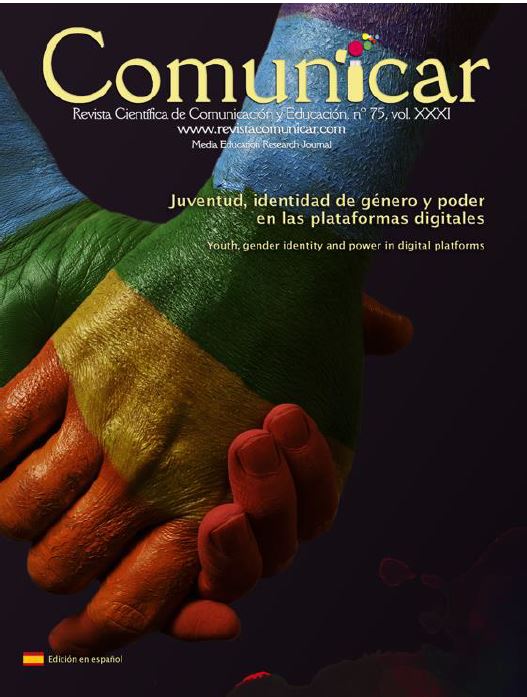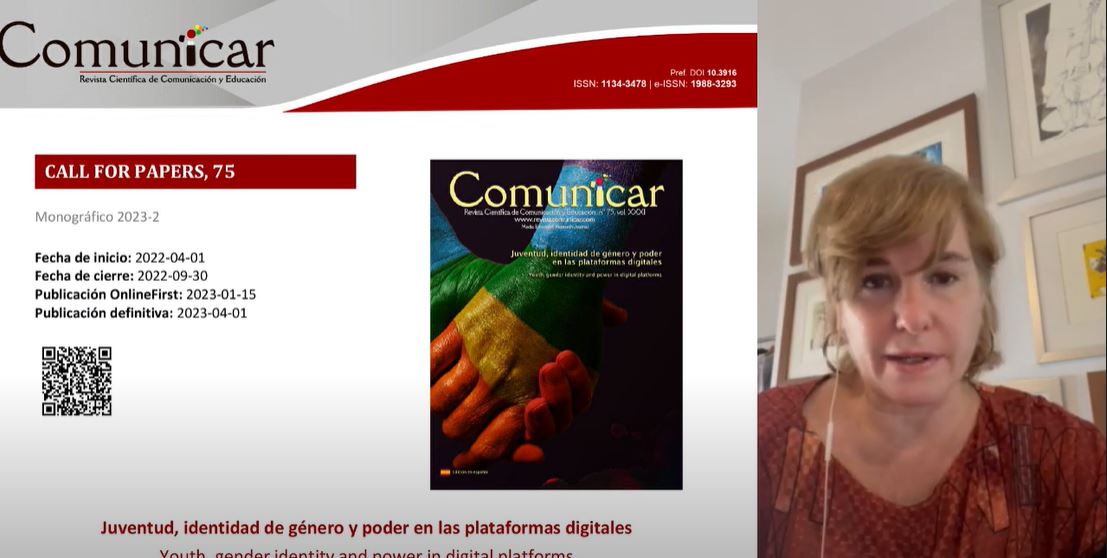Adriana Gewerc, coordinator of GI Stellae, together with Dr. Inés Dusel of CINVESTAV-IPN (Mexico), friend of GI Stellae and researcher of the EDIGA project, and Dr. David Lee-Carlson of Arizona State University (United States) will coordinate the monograph "Youth, gender identity and power in digital platforms" in the Comunicar Journal (JCR, Q1).
This monograph aims to address the practices on digital platforms by young people, paying special attention to the construction of gender identities. The vast majority of young people use the Internet and digital environments, motivated mainly by consuming audiovisual content, maintaining contact with friends and making plans or sharing practices. The platforms provide the frameworks where their sociability and identity scripts are configured. The impact of social networks on gender socialization is undeniable, but it is still necessary to know how it is produced and what social and educational effects these configurations have or may have. Although we can currently see some gaps narrowed, there are still infinite ways of exercising and manifesting power in terms of gender identities, which include systemic or counter-systemic positions and explicit and implicit forms. This work invites us to enter this niche, still to be deciphered, through the questions:
- What role do digital platforms play in the construction of gender identity in adolescents?
- What are the practices that express identity manifestations related to the gender of adolescents in digital environments?
- What are the influences of the different socio-cultural, economic, socio-family contexts and spaces of affinity on the media practices of adolescents?
- What are the explicit and implicit ways of exercising and manifesting gender power, from systemic or counter-systemic positions, on digital platforms?
- What is shown and what is hidden in the practices that young people develop on digital platforms?
- How do young people learn to participate and what type of participation is encouraged on digital platforms?
- What place do LGBTTTQI + and homophobia or transphobia movements and activisms have in the networks and how do they influence the construction of gender identity in adolescence?
- What social and educational effects does the construction of gender identity have on digital platforms?
- What demands are accumulated on educational institutions due to problems such as sexting, grooming, replication of online stereotypes, sexist attacks, homophobes,
- etc., mostly reflected in the different digital platforms through which young people move?
This monograph, which will be released in 2023, will open the reception of articles from April 1 to September 30, 2022. If you are interested in the subject and are currently working on gender identity on digital platforms, we invite you to participate in this issue.
For more information, check the Comunicar Journal website (www.revistacomunicar.com) and the presentation video:







